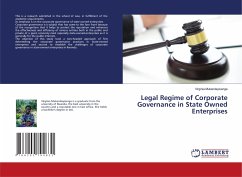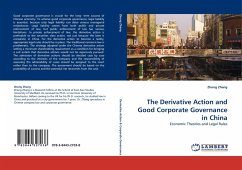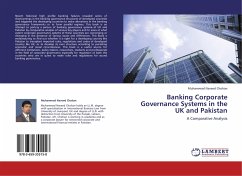
State Versus Self-regulation of corporate governance
Which one should be appropriate for Ethiopia?
Versandkostenfrei!
Versandfertig in 6-10 Tagen
41,99 €
inkl. MwSt.

PAYBACK Punkte
21 °P sammeln!
Though the regulatory system of the corporate governance of non-financial companies in Ethiopia is mandatory too, there are some prominent corporate failures that would prompt someone to question the appropriateness as well as effectiveness of the regulatory regime.The contemporary view towards the'one-size-fits all' framework set by mandatory regimes is equally undesirable in terms of inconvenience and compliance. The country shall cope up with this contemporary trend and it seems that regulatory reform concerning corporate governance is due. The reform should consider key development policy ...
Though the regulatory system of the corporate governance of non-financial companies in Ethiopia is mandatory too, there are some prominent corporate failures that would prompt someone to question the appropriateness as well as effectiveness of the regulatory regime.The contemporary view towards the'one-size-fits all' framework set by mandatory regimes is equally undesirable in terms of inconvenience and compliance. The country shall cope up with this contemporary trend and it seems that regulatory reform concerning corporate governance is due. The reform should consider key development policy aspects which match with the country's plans for poverty reduction and wealth creation. This book, therefore, considers the appropriateness of the new wave of corporate governance regulation, i.e. an'enforced self- regulation'or a 'hybrid' regulatory regime. The analysis of this book is of paramount importance to both the pursuit of knowledge and the identification of the reform measures on the regulation of corporate governance in Ethiopia. Moreover, it will have significant contribution as it stimulates thoughts among policy makers and the academia.












